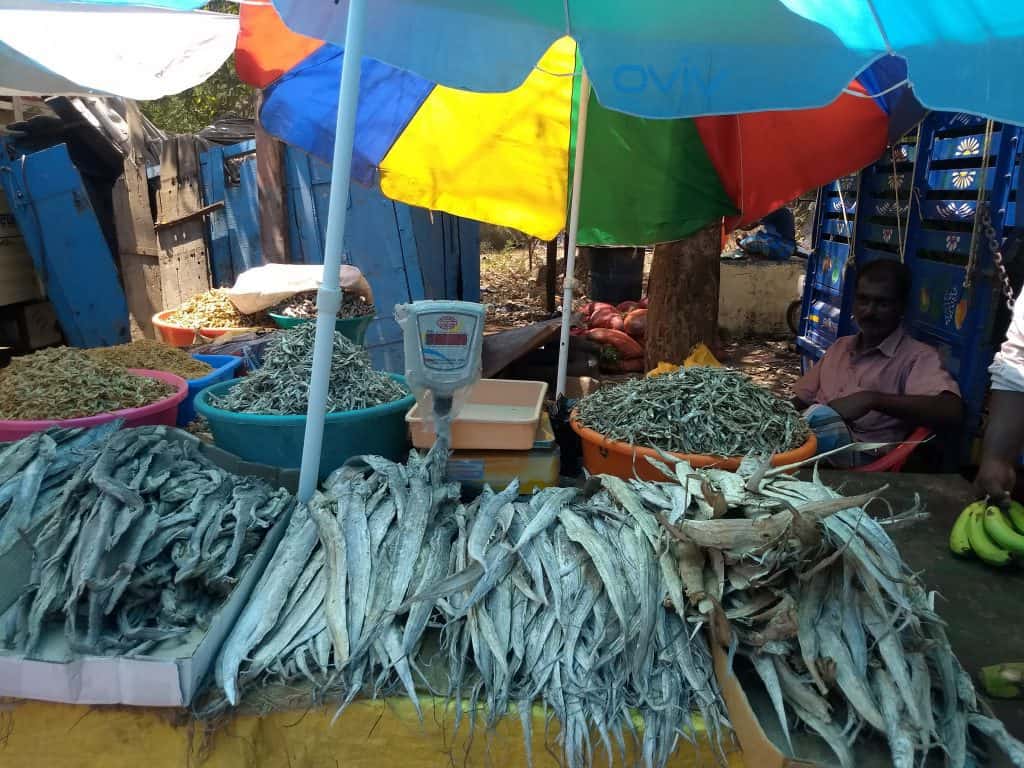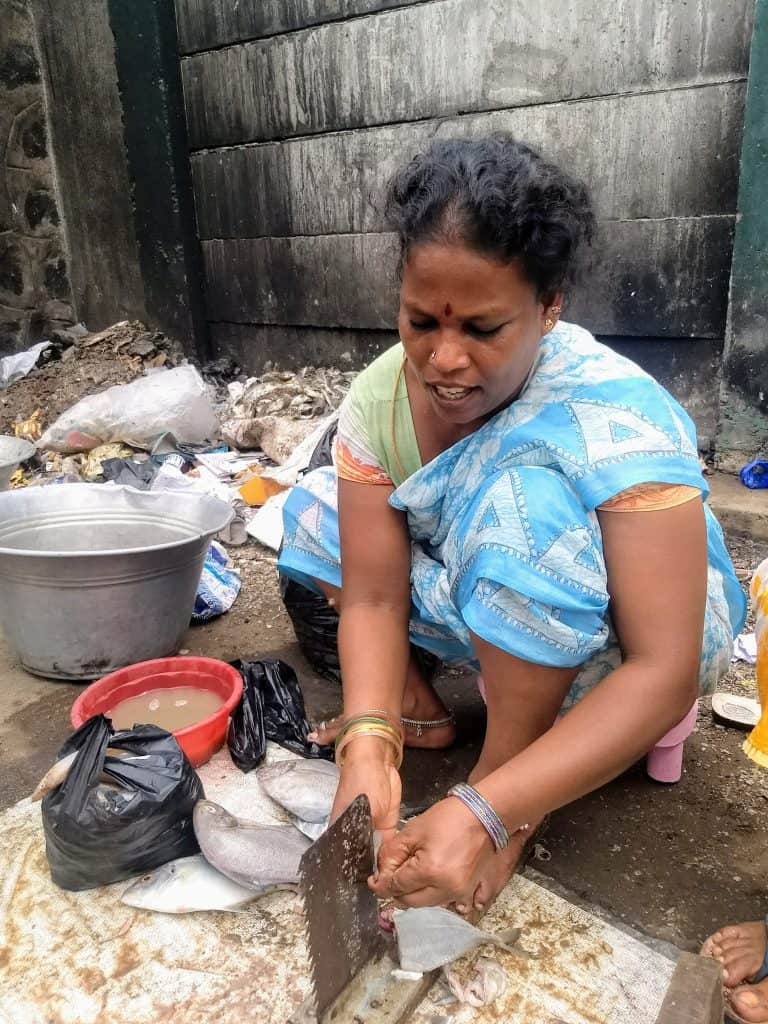April 15th is the day that marks the beginning of the annual 60-day trawling ban in Tamil Nadu. A ban that restricts fishermen with mechanised boats from venturing into the sea. A ban that sees fewer boats getting into the sea along the coastline of Chennai. Not this year!
The Bay of Bengal was abuzz with activity on the 15th when scores of fishermen (mechanised boats are still banned) sailed into the sea after 21 days of the first phase of the nation-wide lockdown. While the lockdown was extended for another 18 days, the central government’s move to exempt fishing and other marine activities from the lockdown brought a ray of hope for thousands of fishermen, who had become bankrupt over the three weeks of confinement.
“Lockdown is worse than tsunami”
S Ethiraj, a 32-year-old fisherman, is among the few people who could get into the sea on Wednesday (April 15), maintaining strict protocols, of course. The fisheries department issued a token to 140 fishermen from the Madras Fishing Harbour at Royapuram. “The catch was poor,” says Ethiraj, adding that it was just enough for his family of seven. But he is happy that he could at least venture into the sea and the pent up anger at the government for not including fishing among essentials has subsided to a large extent.
“These are the toughest times we have lived through ever. It feels like our hands are tied. The lockdown is worse than the tsunami,” says Ethiraj, “We cannot even pledge our jewels as all the shops are closed. We had no choice but to borrow money to keep the family running.” He spent more than Rs 8000 during the 21-day lockdown on mere essentials.

The Madras Fishing Harbour usually sees about 70 to 100 tonnes of fish every day. With fishing allowed only on two days of the week, the economy has been badly hit. Pic: Laasya Shekhar
A common question from all fishermen across the city during the 21 days till April 14th was this: If fruits and vegetables were essential commodities, why not fish? Their concerns were finally addressed when the central government announced a relaxation for fishing and marine aquaculture-related activities. Three departments — Chennai Corporation, the Fisheries Department and the City Police — now took a concerted decision to allow a specified number of boats into the sea twice a week.
“Fishermen in Chennai can venture into the sea on Wednesdays and Sundays. 50% of the boats in the fisheries villages under Kancheepuram and Tiruvallur districts can fish on alternate days. The village committee takes a decision regarding who can go when,” explained K Bharathi, President of South Indian Fishermen Association.
But where are the buyers?
According to a press release from the fisheries department, auctioning of fish in fish landing centres and landing points shall not be allowed during the lockdown. “Village committee shall get quotes from buyers or agents for the various varieties of fish and the catch has to be handed over directly to them,” said the release.
This move was adopted to avoid crowding in retail spaces, says Assistant Director of Fisheries Department, G Velan. “As there has been an increase in coronavirus cases in Chennai, we cannot take the risk of opening up the fish markets to the public. The people are bent on buying fish from the nets, as they feel that’s the only place they can get fresh fish,” said Velan.
But the government’s strategy is not well thought out. Fishermen say that they do not have the details of buyers or the varieties of fish they would be interested to buy. “We agreed to the rule even though selling fish in the wholesale market means a loss for us. But there has been no information from the fisheries department since then about buyers,” said Manikandan S, a fisherman at Madras Fishing Harbour.
Women take the worst hit
Women in these fishing villages are particularly badly hit and face irreparable financial loss. Traditionally, women from the community take over the responsibility of cleaning and selling the fish, after the fishermen come ashore with the catch. As the business has temporarily shifted from retail to wholesale, there is no space for these women.
There are widowed women, and others from troubled homes, who use this meagre income to run their household. One such woman is 46-year-old Parvathy Yesudas, the sole breadwinner of the family, earning about Rs 10,000 a month from the occupation. But not anymore.
“When a woman earns, the money is spent wisely. My husband is an alcoholic, who earns only just enough for his liquor. With no income of my own now, I do not know how to get through this period,” said Parvathy. For many like Parvathy, rationed commodities from the state government are the only source of daily food.
Some fisherwomen are now selling karuvadu (dry fish) from their homes, trying to make whatever measly amount they can from it and hoping that they will not get into trouble for that. They say that they are taking all possible precautions and maintaining social distancing norms.
Lockdown, the annual fishing ban and no support from the government — all these factors together have put the community in a tight spot. The fisherfolk demand that the government should either revoke the ban earlier than usual this year or provide them with livelihood support.
However given that this is breeding season for many varieties of fish, lifting of the ban may not be an ecologically friendly move. The state government should instead take immediate steps to support the community and make the lockdown period easier for them by providing systematic and regular information about wholesale buyers.
